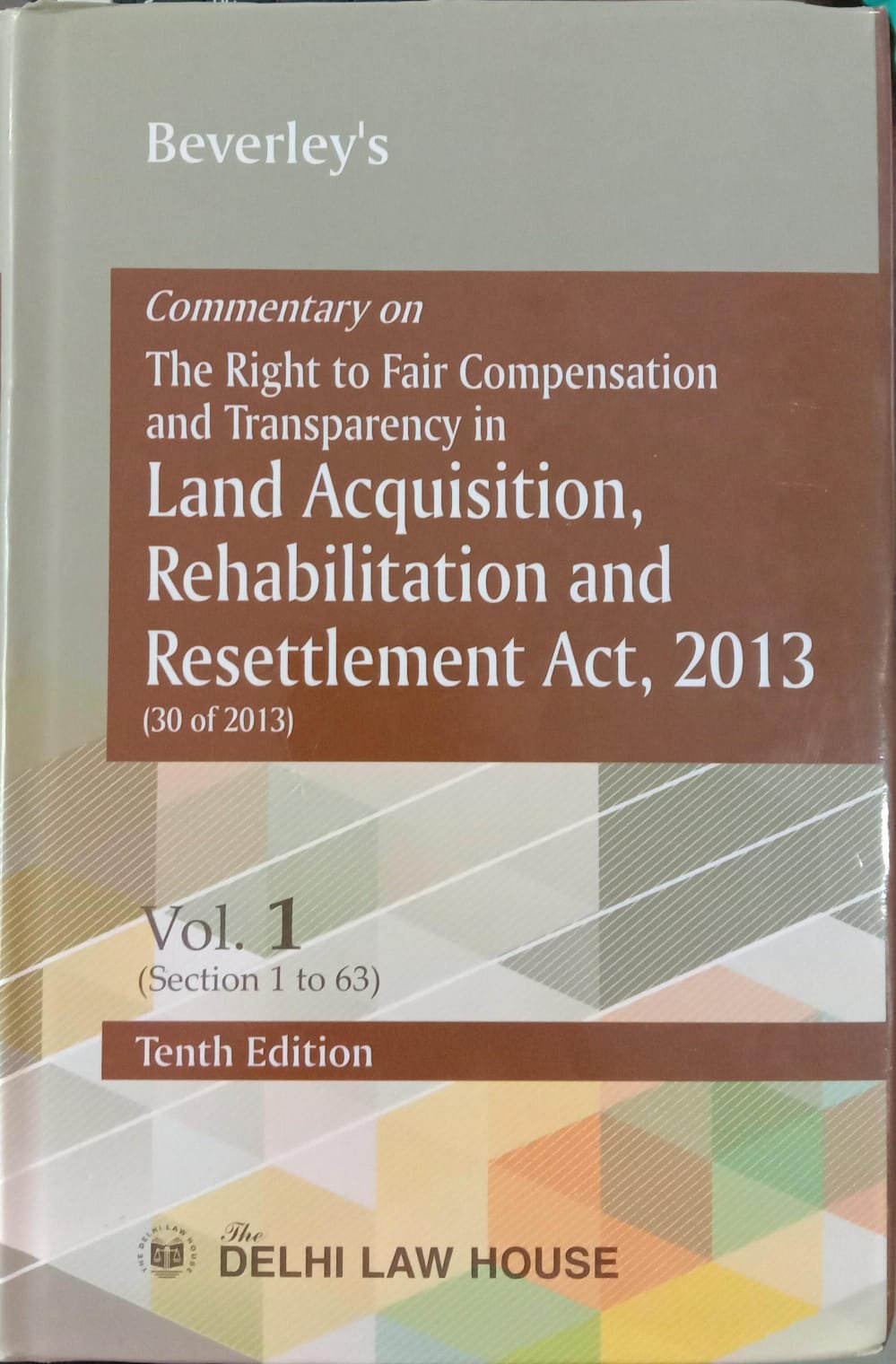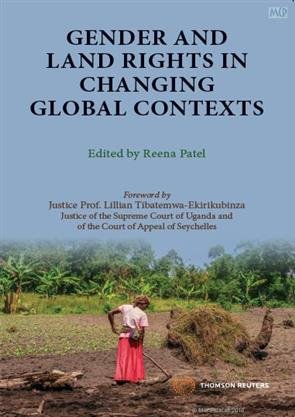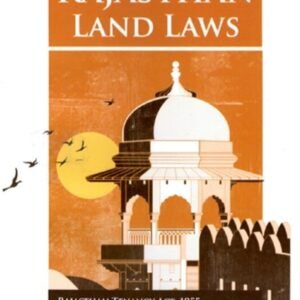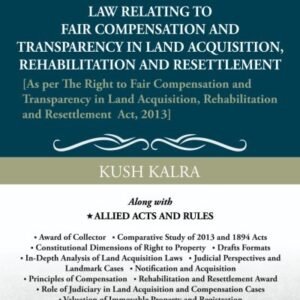Commentary on the Right to Fair Compensation and Transparency in Land Acquisition Rehabilitation and Resettlement Act, 2013 by Aggarwala – Edition 2025 (Reprint)
Original price was: ₹3,995.00.₹2,995.00Current price is: ₹2,995.00.
Commentary on the Right to Fair Compensation and Transparency in Land Acquisition Rehabilitation and Resettlement Act, 2013 by Aggarwala – Edition 2025 (Reprint)
Description
Land is always considered as the symbol of the social status of an individual. Most of the legal systems of the world distinguish different types of property, especially between land and all other forms of property. They often differentiate between tangible and intangible property. The term “property” has been used in a variety of senses. In its wider sense; property includes all the legal rights of a person of whatever description. The law of property deals with proprietary rights in rem. The Law of obligation deals with proprietary rights in personam and the law of status deals with, personal or non-proprietary rights whether in rem or in personam. A right in rem is roughly a right in respect of res, a thing. Property right is a classic example of it. Rights in rem are characterized as those rights which bind the entire world, that is rights which must be respected by all or virtually all of the subjects of the legal system. In contrast, a right in personam is a right available against a particular person, such as those created by a contract. According to Halsbury’s Laws of England ‘property’ means property of a tangible nature, whether real or personal.
The word ‘land’ as used in Entry 49, List II, Seventh Schedule of the Constitution of India, is wide enough to include all lands, whether agricultural or not, and it would be plainly unreasonable to assume that it includes non-agricultural lands but does not include agricultural lands. The word “acquisition” has quite a wide concept meaning the procuring of property or the taking of it permanently or temporarily. It does not necessarily imply acquisition of legal title by the State in the property taken possession of. The right of the landholder to possession was itself a right of property and as this had been taken over it constituted an acquisition within the constitutional provisions.
The concept of ’eminent domain’ and the principle embodied under the legal maxim, “salus populi est suprema lex”, justify the power of State to acquire lands owned or held by individuals for public purposes. The phrase “public purpose”, itself signifies the importance of acquisition for the development of society.
Under the notion of ’eminent domain’ the States have power to acquire any property owned or possessed by individuals. The compensation is sine qua non of acquisition. In this regard some owner friendly provisions have been incorporated in the new Land Law. Apart from that welfare mechanism for resettlement and rehabilitation of displaced persons have also been incorporated. The new Act has been aimed to resolve the problems regarding fair compensation, rehabilitation and resettlement.
“Compensation” refers to just compensation of what the owner has been disposed of. More so, compensation means recompense in value, a quid pro quo, and must be in money. ‘Compensation’ in relation to the property taken for public purpose, then it is the fair market value at the time of taking it. From the Constitutional perspective, the word “compensation” for the property taken was understood as the just equivalent of the value of the property. So what the court in the context of the land acquisition, has to decide is now the Act has designed the compensation.
Additional information
| BINDING | Hardcover |
|---|---|
| AUTHOR | Aggarwala |
| EDITION | 2024 |
| ISBN | 9789388918190 |
| PUBLICATION | DELHI LAW HOUSE |








Reviews
There are no reviews yet.